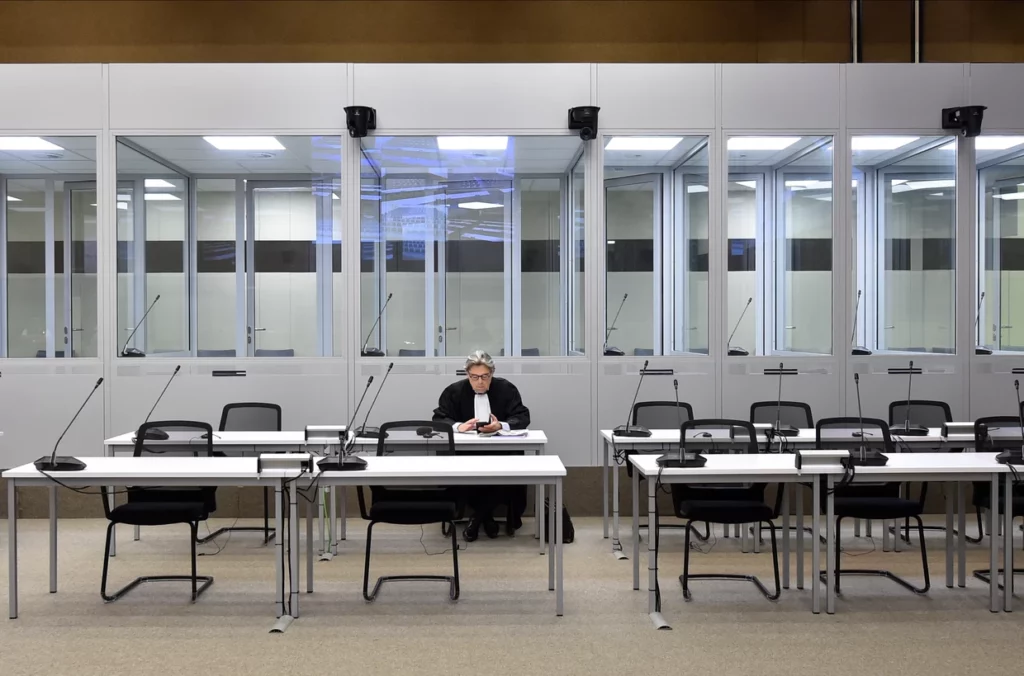Belgium has again been called on to urgently speed up court cases in the country, as the currently long and slow procedures are said to pose a threat to people's human rights. In some cases, the procedures drag on for more than ten years.
The Federal Human Rights Institute (FIRM) has addressed a new intervention to the Council of Europe's (CoE) Committee of Ministers for its excessively long court proceedings. One of the basic principles of the right to a fair trial states that anyone facing a court case should be given a verdict within a reasonable time. But this right is often neglected in Belgium.
"A court case that starts today can drag on for ten years or more in some courts," said FIRM's Director Martien Schotsmans. Belgium has already been condemned four times by the European Court of Human Rights for its lengthy procedures and large backlog of files at the judiciary.
Schotsmans argued that it is "distressing" that many people have to wait years for a decision regarding divorce, distribution of inheritance, or buying property.
The CoE confirmed to The Brussels Times that it received a Rule 9 communication concerning the excessive length of proceedings, but did not fully concur with FIRM's views that the Committee has "reprimanded" Belgium.
"The decision adopted was quite balanced as several positive elements had been reported by the Belgian authorities (including measuring the workload of judges and clerks, major budgetary efforts allocated to judicial staff and efforts to improve statistical data)," a spokesperson said.
Worrying situation in Brussels
The situation is particularly serious in Brussels. "The Brussels Court of Appeal has a huge backlog due to its specific context with large and complex files," Schotsmans explained. The court also handles files from the Federal Public Prosecutor's Office and assize cases (the most serious crimes in Belgium's judicial system), such as the trial surrounding the 2016 attacks.
Other courts are also short of magistrates and staff, with the situation prompting the French-speaking Family Court in Brussels to temporarily stop hearings in April this year.
"The Committee was particularly interested in the situation concerning the most overloaded courts and insisted on the specific measures envisaged in this respect," the CoE spokesperson said. "The Committee will review this issue at one of its Human Rights meetings in 2025, in light of the information provided by the authorities."
Figures from the College of Courts showed that the number of judges in Belgium would have to be increased by almost half to reduce the workload, underscoring the shortage of almost 700 judges.
'Respecting right to fair trial'
Overall, the group argued that Belgium is not taking sufficient measures to settle court cases faster. "More investment is needed in the courts and tribunals, especially in resources for more judges and court clerks, so that citizens' rights are better protected."
Additionally, there is a lack of insight into how long proceedings in its courts are taking. "Data on the duration of proceedings in all courts in the country are needed to improve the situation," she said.
She argued that the government is instead developing new measures and sanctions, such as the municipal administrative penalty (GAS) or the immediate amicable settlement, allowing local authorities to punish certain infringements without the intervention of a judge.
"Without a judge, there is a greater risk that people will be unfairly or excessively punished without having been able to defend themselves and thus the right to a fair trial will not be respected," said Schotsmans. "The government should not try to solve one human rights violation with another violation."

